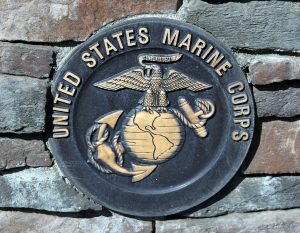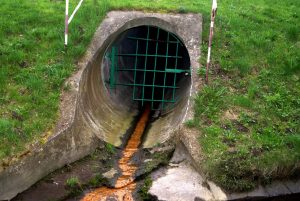 It’s been known for a while now that many members of our armed forces and their families were exposed to toxic chemicals from the drinking water at Marine Corps Base Camp Lejeune (Camp Lejeune). Right now, getting compensation for injuries that resulted from the toxic water exposure is limited.
It’s been known for a while now that many members of our armed forces and their families were exposed to toxic chemicals from the drinking water at Marine Corps Base Camp Lejeune (Camp Lejeune). Right now, getting compensation for injuries that resulted from the toxic water exposure is limited.
However, a new law will hopefully change that. The purpose of this blog post is to answer some questions you might have about your rights concerning health issues stemming from contaminated water at Camp Lejeune.
1. What Chemicals Contaminated the Water at Camp Lejeune?
The U.S. Department of Veterans Affairs (VA) states that in 1985, there were two drinking water wells at Camp Lejeune that contained a variety of harmful chemicals, including:
- Trichloroethylene
- Benzene
- Perchloroethylene (also known as Tetrachloroethylene)
- Vinyl chloride
2. What Health Problems Are Caused by Exposure to These Chemicals?
According to the Agency for Toxic Substances and Disease Registry (ATSDR), exposure to chemicals found in Camp Lejeune’s drinking water has been linked to birth defects, cancers and other major health concerns. Some of these include:
- Bladder cancer
- Kidney cancer
- Liver cancer
- Prostate cancer
- Rectal cancer
- Ovarian cancer
- Breast cancer
- Non-hodgkins lymphoma
- Leukemia
- Cardiac defects
- End-stage renal disease
- Parkinson’s disease
- Multiple myeloma
- Low birth weight
- Miscarriage
- Oral cleft defects
- Fetal death
3. How Did These Toxins Get Into the Water?
 There were many sources for the contamination, such as:
There were many sources for the contamination, such as:
- Dumping oil and industrial waste water into storm drains
- Burial of potentially radioactive materials
- A nearby dry-cleaning business that put wastewater with dry-cleaning chemicals into drains
- Disposal of chemicals at a hazardous waste dump
This caused many dangerous substances to make their way into the water supplies that Marines and their families used to drink, cook and bathe with.
4. Is the Water at Camp Lejeune Now Safe to Drink?
Yes. The water has been safe to drink since 1987, is regularly tested and meets all state and federal laws and regulations concerning drinking water safety.
5. What Sort of Compensation or Relief Can I Get Right Now If I Was Exposed?
As a result of the Camp Lejeune Families Act of 2012, veterans and their family members who served at Camp Lejeune for at least 30 days from August 1953 to December 1987 will receive medical care benefits from the VA relating to any of the following 15 conditions:
- Bladder cancer
- Breast cancer
- Esophageal cancer
- Female infertility
- Hepatic steatosis
- Kidney cancer
- Leukemia
- Lung cancer
- Miscarriage
- Multiple myeloma
- Myelodysplastic syndromes
- Neurobehavioral effects
- Non-Hodgkin’s lymphoma
- Renal toxicity
- Scleroderma
The VA will also reimburse eligible individuals for their out-of-pocket medical expenses relating to the above 15 conditions.
Veterans, Reservists and National Guard members who meet the above criteria may also be eligible for disability payments if they were diagnosed with one or more of the following eight conditions:
- Adult leukemia
- Aplastic anemia and other myelodysplastic syndromes
- Bladder cancer
- Kidney cancer
- Liver cancer
- Multiple myeloma
- Non-Hodgkin’s lymphoma
- Parkinson’s disease
6. What if the VA Benefits Don’t Apply or Aren’t Enough?
At the moment, there’s not much else you can do. You can’t bring a personal injury civil suit, thanks to the statute of repose. The Camp Lejeune Justice Act of 2022, which was included as part of the Honoring Our PACT Act of 2022, might be on the verge of changing that, however.
7. How Does the Camp Lejeune Justice Act of 2022 Help?
This law will remove the statute of repose so that eligible individuals can file a civil suit to recover damages for personal injuries suffered due to toxic water exposure at Camp Lejeune. Generally speaking, if you’re eligible for VA benefits relating to health problems from toxic water exposure at Camp Lejeune, then you’re eligible to use this law to file suit.
To get more detailed information about this proposed law, you can check out my earlier blog post, “Camp Lejeune Marine Corps Base Contaminated Water Litigation.”
8. Has the Camp Lejeune Justice Act of 2022 Been Enacted?
 No, as there’s been unexpected political hurdles as of late. An earlier draft of the Honoring Our PACT Act of 2022 easily passed the Senate back in June with 84 votes. But due to a technicality, it had to get voted on again by the Senate. Despite being virtually the same law (with no substantive changes being made), many senators who previously voted in favor of the bill had a change of heart and voted to block the bill.
No, as there’s been unexpected political hurdles as of late. An earlier draft of the Honoring Our PACT Act of 2022 easily passed the Senate back in June with 84 votes. But due to a technicality, it had to get voted on again by the Senate. Despite being virtually the same law (with no substantive changes being made), many senators who previously voted in favor of the bill had a change of heart and voted to block the bill.
Why some Senators changed their vote is up to interpretation, as there’s probably a bit of politicking going on in Washington. So what was previously thought to be a done deal now faces the possibility of never getting passed by Congress.
9. Now What?
We wait and see what Congress does and hope they do the right thing. It’s an election year and what’s happening to this law is getting a lot of media attention, so anything is possible.
If you want to learn more about getting compensation for injuries relating to the water at Camp Lejeune, feel free to contact me at 919.546.8788.
 North Carolina Product Liability Lawyer Blog
North Carolina Product Liability Lawyer Blog

